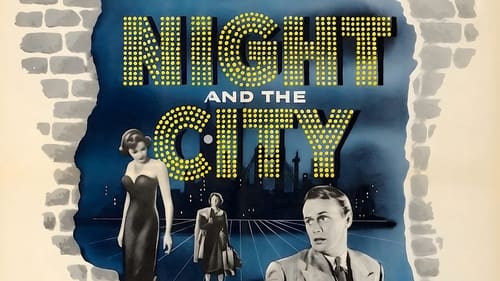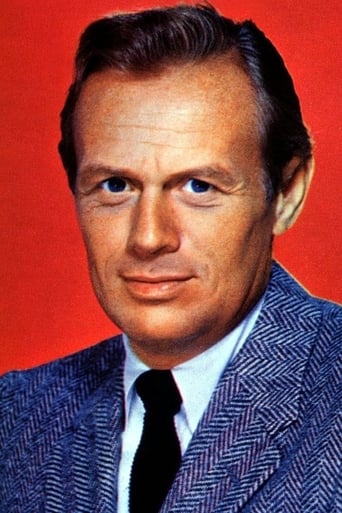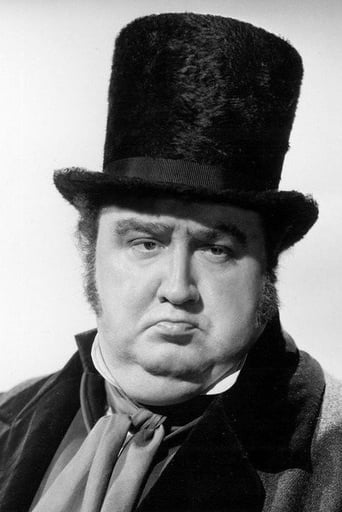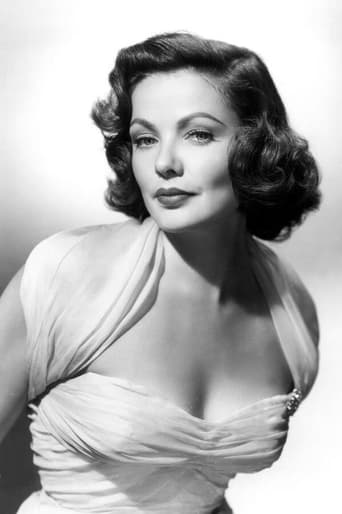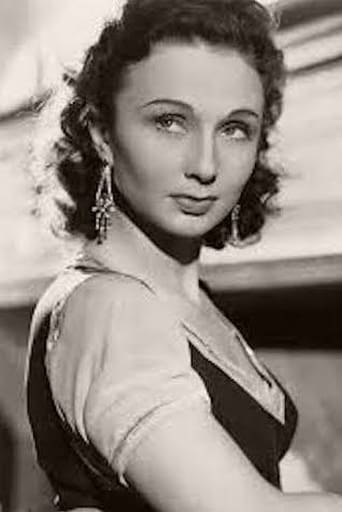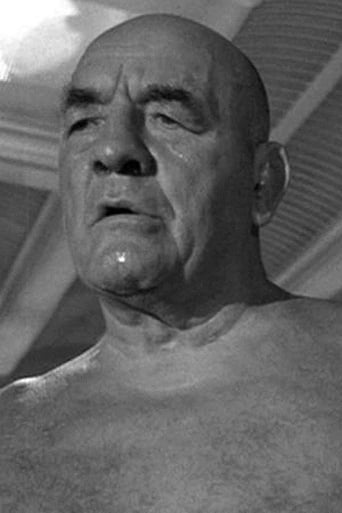Diagonaldi
Very well executed
Humaira Grant
It’s not bad or unwatchable but despite the amplitude of the spectacle, the end result is underwhelming.
Francene Odetta
It's simply great fun, a winsome film and an occasionally over-the-top luxury fantasy that never flags.
CallEmLike ICem
This movie's an all right way to spend 95 minutes. I didn't find it to be great, or any kind of classic.It's a low-budget, 'b' movie from 1950. It's mostly about a lot of seedy characters in the underbelly of a big city, who mostly seem in a race to see who can stab each other in the back fastest. The lead character, Harry Fabian (Richard Widmark), is particularly unlikable, a hustling, get-rich-quick schemer who, at two low points, robs his own girlfriend's purse to finance his schemes.I did read in the liner notes the director didn't think much of this film, and I agree. It gets a little too obvious, too many times. Like Widmark. We get the idea he's pretty low the first time he tries to steal from his own gal's purse. Bringing that back a second time feels a little heavy-handed.I did feel a little bit sorry for Widmark at the end when he knows he's going to die, but not really a lot. I mostly felt relieved for his girlfriend's sake, who is played by Gene Tierney. I wish there were women nowadays who looked like Gene Tierney does here. There's still plenty of women being made; so maybe it's the period clothes or Hollywood cinematography. Or maybe just the way she carries herself, with a certain amount of class, dignity, and respect.Probably the most believable strain of the story is how she's also getting interest from a decent, and better-looking, guy (Hugh Marlowe), but she sticks with her unlovable rake, Widmark. That's a human trait that's all too recognizable.Widmark winds up strangled to death and having his corpse dumped in the river, so Tierney can shrug off her lovin' the bad boy chapter and run into Marlowe's arms, who's already running towards her waiting.If you think you're getting a 'film noir classic' with this, let me warn ya: except for some of the later ones, 'film noir' was definitely a genre after the fact. Some French film critics noticed a group of post-war Hollywood movies had some dark themes, and lighting and direction to match, and started calling them that. Until then, no one involved knew, at the time, they were making a 'film noir.' They tended to be low-budget crime dramas made, as usual, to try to make money. Apparently, the post-World War II audiences wanted something harsher, so movie makers gave it to 'em. It isn't until you get to the later ones called 'film noir,' like Orson Welles "Touch of Evil," that it really seems a conscious genre choice.
gavin6942
A small-time grifter and nightclub tout (Richard Widmark) takes advantage of some fortuitous circumstances and tries to become a big-time player as a wrestling promoter.Jules Dassin can do film noir. And interestingly, he seems to do it best when he is a hated man. At the time this film was made, he was recently kicked out of Hollywood for his alleged Communist sympathies. And what does he do? A one-two punch of this film and "Rififi", probably his two finest works.Of course, some credit must be given to cameraman Mutz Greenbaum. Any time you have noir, it has to look the part -- the genre is just as much an art form as it is a kind of plot.
oOgiandujaOo_and_Eddy_Merckx
Why is it that films noir have such spurious titles? The German title, "Die Ratte von Soho" / "The Rat of Soho" seems a more suitably lurid fit, certainly as a hook. To go with the spurious title there's a spurious introduction on the theme of Night and the City, which is at least easy on the eye, though fortunately brief. What the film is really about is the existential failure of one Harry Fabian, a cheap conman, but full of life. The movie is a very sordid one, an initial lecture is given to a bunch of *ahem* companions in the Silver Fox nightclub about how to fleece the customers, there is however to be no actual theft from them on the premises, although, suggestively, what happens to the customers on leaving the club is of no concern to the management. A friend of my brother has post-traumatic stress from being the victim of such a honey trap whilst drunk in London this year, so I really connected with the cutting edge of nastiness this film provides. Although this movie is set in a moonlit criminal demi-monde, there are about five separate love stories, arranged in a complicated geometry. These are what pull the heartstrings and kept me rapt throughout. The central love story is Mary's love for Harry, who does little more than use her. She sees a vitality in him that attracts her helplessly, as if he's a magnet, and overlooks all his faults for this. He's a hamstrung man, who's damaged heart spills out in a final scene of electrifying intensity. Richard Widmark, who I have rarely appreciated as an actor, here throws everything at his role but the kitchen sink and deserves all the praise he gets.Night and the City is an absolutely heartbreaking film that I realised had really shaken me up after I left the cinema. I had fish and chips to celebrate in Cockney style. Peripherally I think it's worth mentioning that there is more than one version of this movie, and it can look a bit strange because a lot of the build up to the, possibly overwrought, action of the denouement is cut in what I believe is the American version. Would pay to rent out the Criterion DVD of this movie as it apparently has explanatory extras on this subject. I would also like to express my admiration for the seductive qualities of Googie Withers' portrayal of Helen Nosseross, and for the horrid wrestling scene in the movie which actually aroused this hysteric feeling in me, that happens when a fight starts in real life, and which films very rarely manage to achieve.
ZachFrances1990
A Film Noir is only as good as its city is corrupt. Night and the City presents the darkest. A Film Noir is only as tender as its women are vicious. A Film Noir is only as poignant as its hero is perilous. Meet Harry Fabian. Many disregard the character as unlikable, but I like to think of him as the most easily accessible protagonist in all of Film Noir. Richard Widmark, in his Kiss Of Death best, gives a bold, honest, engaging and truly sympathetic performance. I think when most watch Film Noir, they forget all about empathy, to truly fall in love with Night and the City, you must first empathize with its hero. Have you ever been so desperate you'd do almost anything? I have. Have you ever been so deep in a hole that it could very well become your grave? I have. Have you ever loved someone so much that you'd do anything to give her world? I have. Have you ever wanted to be somebody. I have. Harry Fabian is the desperate Man immortal. He is the most insecure of all Noir heroes, and the most certain to fail. But we're here, we're with him on his long descent straight to hell. The film's uncanny pacing will make you feel completely helpless, like Fabian ultimately does, and since you are a part of the audience and you are thereby privileged with information kept from Fabian, you become aware of the tragedy that awaits him at the end of his descent, unlike our unfortunate hero, Harry Fabian. Night and the City was directed by the exceptional and overlooked true pioneer of Noir, Jules Dassin. Dassin made a few extremely serene pictures at the very height of Noir, his best was Night and the City. Made shortly before his exile during the Communist Witch Hunts of which he fell victim to in 1952, Night and the City is everything a Film Noir should be, and everything it could have been if the genre's longevity had been harnessed and controlled early on, and if his film wasn't so easily swept aside in its time. And with God as my witness, I profess! Night and the City is better than every movie that has ever been made since then, with the one exception of Alexander Mackendrick's 1957 magnum opus and testament of the cinema Sweet Smell Of Success. Night and the City is one of the greatest films ever made, and also one of the most forgotten. Quite like what we'd expect of Harry Fabian. The way that this film seems lost simply mirrors the themes that made the film so wonderful in the first place, all Harry Fabian wanted to do was to be somebody, to be remembered. Sadly, in both film and history, he never was. And that, that makes Night and the City poetic.



